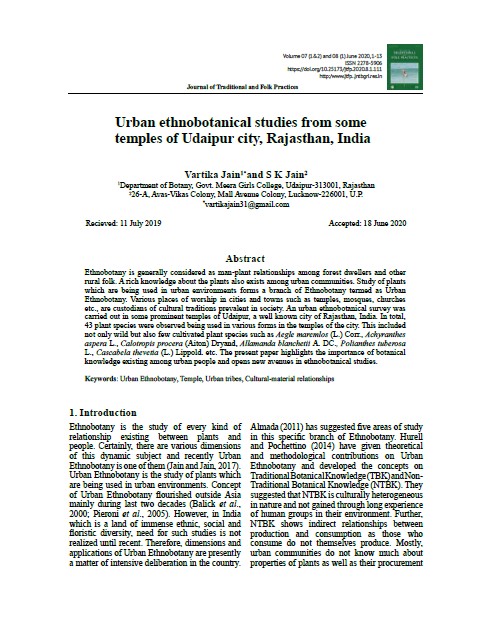Urban ethnobotanical studies from some temples of Udaipur city, Rajasthan, India
Keywords:
Urban Ethnobotany, Temple, Urban tribes, Cultural-material relationshipsAbstract
Ethnobotany is generally considered as man-plant relationships among forest dwellers and other rural folk. A rich knowledge about the plants also exists among urban communities. Study of plants which are being used in urban environments forms a branch of Ethnobotany termed as Urban Ethnobotany. Various places of worship in cities and towns such as temples, mosques, churches etc., are custodians of cultural traditions prevalent in society. An urban ethnobotanical survey was carried out in some prominent temples of Udaipur, a well known city of Rajasthan, India. In total, 43 plant species were observed being used in various forms in the temples of the city. This included not only wild but also few cultivated plant species such as Aegle maremlos (L.) Corr., Achyranthes aspera L., Calotropis procera (Aiton) Dryand, Allamanda blanchetii A. DC., Polianthes tuberosa L., Cascabela thevetia (L.) Lippold. etc. The present paper highlights the importance of botanical knowledge existing among urban people and opens new avenues in ethnobotanical studies.


